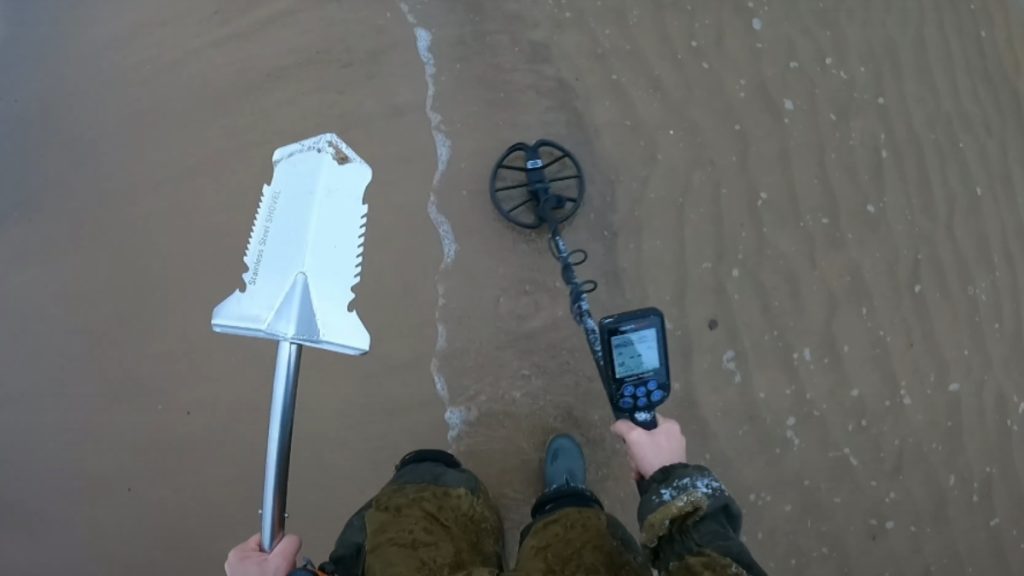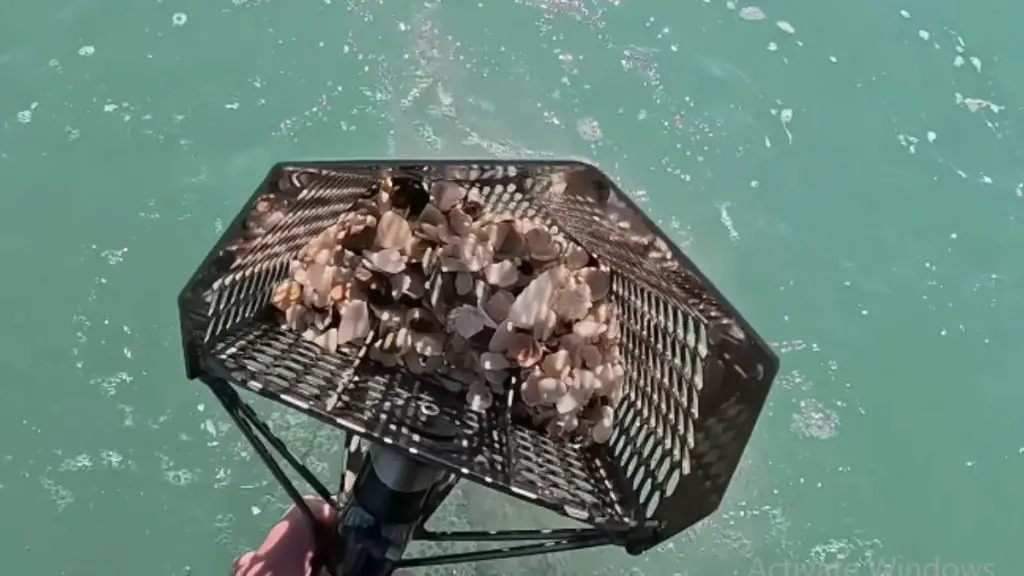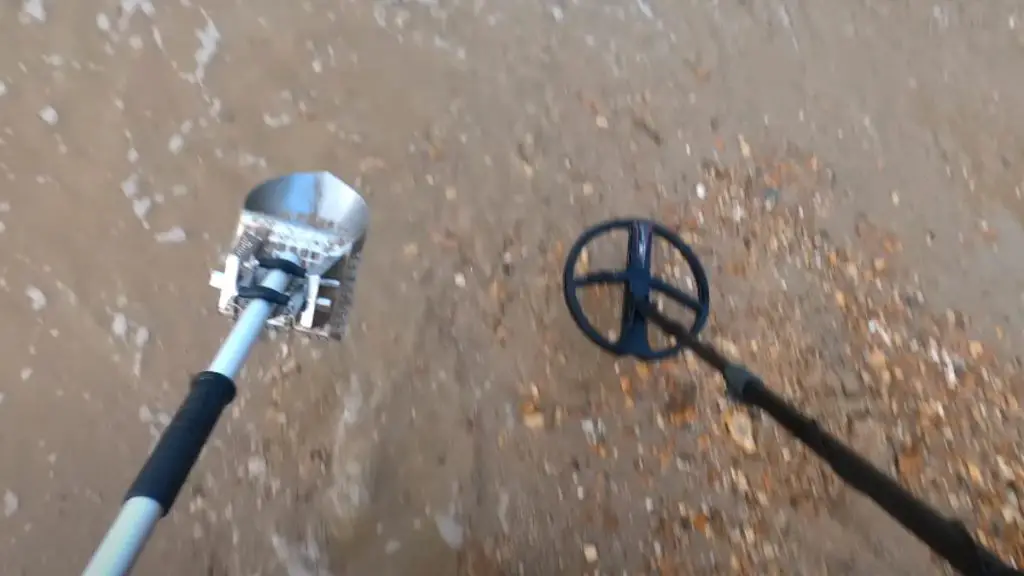In Georgia, the hunt for hidden treasures is not just a tale of fiction but a real pursuit for many enthusiasts.
As individuals sweep their detectors across the vast historical landscapes, they uncover relics that whisper stories of Georgia’s rich past.
So, in this guide we’ll discover the best places, clubs for metal detection in Georgia, legal considerations and much more.
Let’s dive in!
Metal Detection In Georgia

Georgia is rich in history, having been one of the original Thirteen Colonies and the site of many pivotal moments, especially in the context of the Civil War.
As a result, it has a large population of both history enthusiasts and amateur metal detectors, providing a supportive community for this hobby.
For metal detecting, Georgia offers numerous prospects due to its historic battlefields, old homesites, and beaches.
Some of the best places for metal detecting include the beaches along Georgia’s coast, where you can find relics washed ashore as well as modern items.
The historic sites provide more chances to find artifacts from the past, though it is crucial to note that digging on these lands often requires special permission.
Metal detecting in Georgia is regulated, particularly on state lands and historical sites, where you usually need to have a permit.
And you should respect private property and always seek permission before detecting someone’s land.
Is Metal Detection Legal In Georgia
Yes, metal detecting is legal in Georgia; however, it comes with specific regulations that vary between public lands, private property, historic sites, and state parks.
On private property, metal detecting is allowed with the explicit consent of the property owner.
For public lands and beaches, generally metal detecting is permitted, but local ordinances can vary, so it’s always best to check the rules of the specific area.
When it comes to state parks, metal detecting may be allowed in certain areas, but you’re often required to obtain a permit.
On the other hand, metal detecting is not allowed on protected historic, archaeological, and Native American burial sites to preserve heritage under state and federal laws.
Best Places for Metal Detection In Georgia
Here’s a few best places for metal detection in Georgia:
1. Abandoned Buildings and Structures
These sites often contain relics from past occupants, offering a high chance of finding unique and valuable items.
2. Abandoned Parks and Mines
Abandoned parks and mines are rich in history and potentially unclaimed finds, including old coins, jewelry, and mining artifacts.
3. Old Wagon Train Routes and Churches
These historical paths and sites can reveal artifacts from significant periods in Georgia’s history, providing insight into the past lives of its inhabitants.
4. Native American Trails
Trails used by Native Americans are great for finding ancient artifacts, offering a glimpse into the pre-colonial history of the area.
5. Natural Disaster Destruction Sites
Areas affected by natural disasters can uncover previously buried items, making them hotspots for unexpected finds.
6. Georgia Beaches, Rivers, Lakes, and Creeks
Water bodies are ideal for finding lost jewelry and coins. Popular spots include Little Tybee Island Beach and St. Andrews Beach Park.
Notable Locations:
Little Tybee Island Beach, Tybee Island; St. Andrews Beach Park, Jekyll Island; East Beach, St. Simmons Island; Acworth Beach, Acworth; Cumberland Island National Seashore Beach, St. Marys.
7. School Yards and Ghost Towns
These locations are often overlooked, making them perfect for discovering items lost over generations.
Notable Ghost Towns:
Fort McAllister, Bryan; Andersonville Prison, Sumpter; Cumberland Island; Griswoldville, Jones; Jacksonboro, Screven.
8. Civil War Sites
Georgia’s rich Civil War history means sites like Fort McAllister and Fort Pulaski are prime for finding military artifacts and relics.
Best Clubs for Metal Detection In Georgia
Here are the best clubs for metal detection in Georgia:
1. Stone Mountain Treasure Hunters
Location: Lawrenceville, Stone Mountain area, Dekalb County
Activities: Field trips, events, weekly practice sessions
Membership Fee: Affordable (specific fees not mentioned), payable quarterly or annually
Contact: Mel Parker (678-428-3557), Gwinnett County Fire Station #5, 3001 Old Norcross Road, Duluth, GA 30096
Website: Stone Mountain Treasure Hunters
2. North Georgia Relic Hunters Association
Location: Marietta, Georgia
Focus: Recovering old relics, mostly in Northern Georgia
Membership Fee: $10.00 per year, free for those 75+ or past presidents
Contact: [email protected], PO Box 503, Marietta, GA 30061
Facebook Group: North Georgia Relic Hunters Association (NGRHA)
3. Georgia Gold Prospectors Association
Location: Acworth, Georgia
Focus: Gold prospecting
Membership Fee: Details not provided, but mentioned as the highest on the list
Contact: [email protected], Jim Cornell, 4934 Pickys Hollow, Acworth, GA 30102
4. Georgia Research and Recovery Club
Activities: Knowledge-sharing sessions, field trips
Focus: Ethical metal detecting practices
Membership Fee: Affordable (specific fees not mentioned)
Contact: 770-943-0714, 1746 Treverton Trace, PowderSprings, GA 30127
5. Dixie Relic Recovery Club
Location: Ringgold, Georgia
Focus: Ethical metal detecting, especially Civil War relics
Membership Fee: Low, first session free
Contact: [email protected]
6. Coastal Empire History Hunters Association
Location: Savannah, Georgia
Focus: Recovering lost artifacts and relics from coastal areas
Membership Fee: Affordable and manageable
Contact: [email protected], PO Box 865, Ellabell, GA 31308
7. Weekend Goldminers Prospecting Club
Location: Dahlonega, Georgia
Focus: Gold prospecting
Membership Fee: Full membership $2,000, with various payment options including a lifetime membership
Contact: (770) 531-WEGM, P.O. Box 910, Dahlonega, GA 30533
Each club offers a blend of activities, from field trips and knowledge-sharing sessions to practice sessions and special events, aimed at enhancing the metal detecting experience.
Membership benefits typically include access to club forums, events, and the collective wisdom of the community.
Best Accessories for Metal Detection In Georgia
For metal detection enthusiasts in Georgia, having the right accessories can immensely improve the treasure-hunting experience.
A good quality digging tool is essential for unearthing finds without damaging them; look for one that is sturdy and has a serrated edge for cutting through tough soil.
Also, a pinpointer is highly recommended; it helps you zero in on items quickly, saving you time and effort.
Due to Georgia’s varied terrain, including forests and beaches, a find pouch or bag is crucial for carrying your discoveries and trash items you may dig up.
Waterproof gear can also be beneficial, particularly if you’re searching near water bodies or during the rainy season.
Lastly, while all these accessories are important, ensure to check local laws for metal detecting to respect property and archaeological sites.
Is there any buried treasure in Georgia?
While there are no verified reports of buried treasure in Georgia that one could go out and find today, the state has a rich history that has often led to stories and legends of hidden wealth.
During the Civil War era, it is rumored that both Confederate and Union soldiers may have buried valuables for safekeeping when moving campsites.
Tales of pirates along the Georgia coast hiding their loot have been passed down through generations.
Although these stories can be exciting, they are more folklore than fact.
If you’re genuinely interested in finding treasure in Georgia, you might consider taking up metal detecting or prospecting as a hobby.
Top Finds in Georgia from Metal Detection
Georgia is rich in history, and metal detecting in the state can yield some fascinating finds.
Among the top discoveries are Civil War artifacts, such as bullets, buttons, and belt buckles found at old battlefields.
Old coins, including silver dimes and quarters from the 1800s, are frequently uncovered in places like former homesteads.
Moreover, antique jewelry and relics from indigenous tribes, such as arrowheads and pottery shards, are occasionally discovered, especially along riverbanks and old trading paths.
You can also find our guide on metal detection in Alaska, In Ontario, metal detection in Mississippi, and In Iowa; for successful hunt.
Is there money in metal detecting?
Metal detecting can indeed be a hobby that pays off, but it usually isn’t a stable source of income.
People who enjoy metal detecting do it primarily for the fun, the thrill of the hunt, and the love of history.
Sometimes, if they’re really lucky, they might find something valuable like old coins or even jewelry.
However, such finds are not guaranteed, and it could take a lot of time and patience.
There are also costs to consider, like buying the metal detector and possibly travel expenses to get to different locations.
While you might make some money from metal detecting, you should see it as a rewarding hobby rather than a job.

Frederick Perez is the founder of Scrape Dude. He loves exploring and finding hidden treasures in unexpected places. Frederick has been dumpster diving and gold panning for years, turning his hobby into our website to share his adventures. He’s known for his friendly advice and exciting stories, inspiring others to discover the joy in these unique hobbies. His expertise makes Scrape Dude a trusted and fun place to learn and explore.


